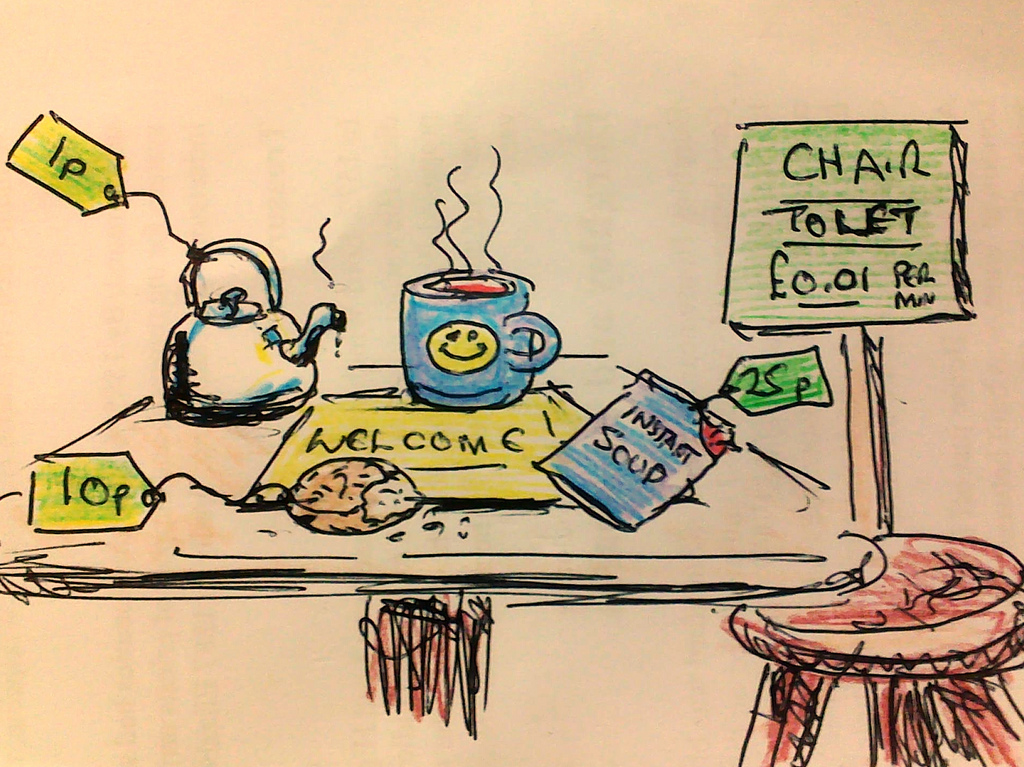Unlike NHS counselling (which may be limited to just a few sessions, can only be accessed by visiting your GP, and may not be available until after a long waiting list) private therapy such as counselling isn’t limited to a set number of sessions (so it doesn’t cease mid-therapy), you don’t have to be referred by your GP (your GP doesn’t even have to know you’re visiting a counsellor if you want to keep matters private) and is usually available on-demand (no long waiting lists).
Private counselling also costs you a fee (actually, NHS counselling costs you a fee too but you pay for the fee through your National Insurance tax).
For some on a restricted income, it may seem as if private counselling may be a struggle to afford – but many (responsible) private-practice counsellors, such as Dean Richardson, will cater for this situation; some offer low fees across the board and some (like Dean) will offer to negotiate with you to find a rate that you can responsibly afford.
Because it’s ethical to assist the public in making an informed decision about which counsellor to choose, this article discusses some of the perfectly legitimate reasons for counsellors who charge much lower fees than other counsellors in your area.
Counsellors offering Low Rates.
Some counsellors offer cheap session fees because:-
- The counsellor may not yet be qualified or is inexperienced. Sometimes we call a pre-qualified counsellor a “counsellor-in-training”. The counsellor is working towards receiving their first qualification and is meeting regularly (eg weekly) with a supervisor whilst they are attending their training in counselling*.
- The counsellor may have a qualification in another form of counselling, and they may be re-training in a new (to them) form of therapy … which is the counselling that you’re thinking about buying from them*.
- The counsellor may require 450 practice-hours to apply for professional accreditation. Professional bodies (like the British Association for Counselling & Psychotherapy) have an application procedure that proves a counsellor’s competency (see http://www.bacp.co.uk/accreditation/). Counsellors working towards having sufficient hours within the set period (i.e. >=3 years <=6 years) may be offering lower fees to attract clients.
- The counsellor may be working through a charity (which is funding the sessions with your counsellor).
- The counsellor has no qualifications (and is not investing in any training nor ongoing competency). The person isn’t a member of a professional body and is not attending regular monthly supervision. IN REALITY, there is no UK law preventing people from saying that they are a counsellor (“Counsellor” is not a protected title) , but it’s highly unethical practice. It would be wise to ask your counsellor about his qualifications during your first meeting (and judge for yourself how you feel about his response).
* In the training category, counsellors are usually required to obtain a number of practice hours before a qualification is awarded (eg 100 hours within two years). Offering cheap counselling rates may be one way an unqualified / in-training counsellor can get sufficient clients.
Working towards qualification or accreditation is an ethical way for a counsellor to improve their practice – and a low fee does not necessarily reflect on the quality or competency of the counsellor’s skills.
It can be helpful for you to ask the counsellor: “What is your qualification to practice counselling” or “Are you still in training?” and judge the answer for yourself.
Other counsellors may offer cheap rates because:
- The counsellor may be just starting out in private practice, and has no (or very few) clients – they are trying to build up their practice and/or may be in competition with other more established / more experienced therapists in the area.
- The counsellor is inexperienced in business, marketing or promoting their therapy service, believing that the only way to attract clients is by offering a low fee (counselling training doesn’t provide businesses training).
- The counsellor may struggle with their own self-worth: often counselling training courses encourage counsellors to be humble and to focus on their humility. This can give the impression that counsellors are very kind, or even weak, but the training approach is to help counsellors show empathy and avoid being “too powerful” in their approach, particularly to sensitive situations (eg rape, abuse, addiction). This can sometimes have an adverse effect on how ow the counsellor views their own “value” or “self-worth”; and this may be reflected in their struggle to charge anything but a very low fee for their services.
- The counsellor may have been sanctioned by their professional body (eg the British Association for Counselling & Psychotherapy) and may require a number of supervised practice hours before they can re-apply for their accreditation status again.
It can be helpful for you to ask the counsellor: “Why are your fees so low” and judge for yourself how you feel about their response.
Compare Dean Richardson’s Approach to Lower Fees.
Dean Richardson Registered Member MNCS(Accredited Registrant) originally trained in a counselling charity which was offering a BACP Accredited diploma in counselling.
The charity did not turn people away from individual counselling due to not being able to afford it (though couple counselling, when introduced, had a minimum rate). Clients were invited to offer their own a rate-per-session.
A significant number of people struggle to value themselves, though, and this can be reflected in the rate they offer for counselling (e.g. thoughts might include: “I don’t think of myself very much, so I don’t see why I would pay a much money for counselling”).
Dean learned a valuable lesson in discussing money with clients – to discuss a fee that the client can responsibly afford.
He continues this approach today in his private counselling practice. Whilst he has standard fees for each of his counselling services, he also have a number of places where he will discuss what a client can responsibly afford to pay for weekly counselling – to those whose income prevents them from accessing private counselling.
Click to to read more about How to Discuss a Lower Fee for Counselling with Dean Richardson.
When Finances change During Counselling.
Sometimes a client’s finances change during counselling. Some clients choose to end their counselling without working towards the end. Others find ways to discuss with Dean how to renegotiate payments.
Discussing the fee might include:-
- Reducing the weekly payment and keeping a tally of what is owed. The owed money are paid off weekly after counselling has finished until the amount is paid in full.
- Renegotiating the fee to a level that the client can responsibly afford (and discussing this again when the financial situation improves).
- Rarely, it may be appropriate to change the frequency of sessions (eg from weekly to fortnightly) but this isn’t like “taking the week off” and this change in approach will need to be carefully discussed.



